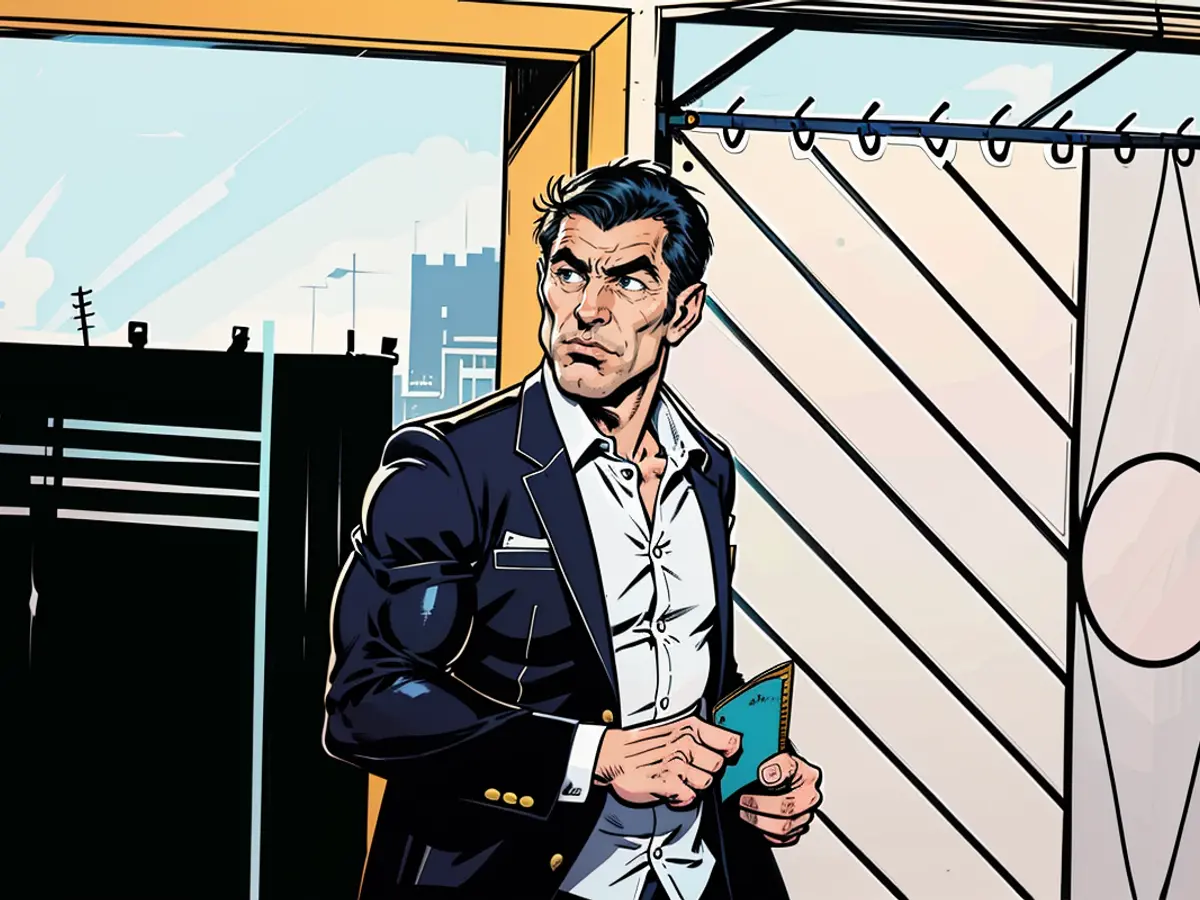16:48 Thuringia's AfD Faction Insists on Media-Free Celebration
16:29 Around a quarter of eligible voters in Saxony have cast their ballots via mailFor the crucial election that Saxony's CDU Minister President Michael Kretschmer described as a "make-or-break election" for the state, nearly a quarter of eligible voters have already submitted their ballots by mail. The state election commissioner predicts that 24.6% of voters will have voted by mail. The voter turnout today slightly surpassed that of 2019 in the afternoon hours.
15:52 Höcke votes at the polls in a Lada - Ramelow votes with his wifeThe top AfD candidate and Thuringia's AfD state leader, Björn Höcke, cast his vote at noon. The 52-year-old arrived at his polling station in Bornhagen, Eichsfeld district, in a Lada Niva, a Russian-made off-road vehicle.
Meanwhile, Minister President Bodo Ramelow of Thuringia voted in the state capital of Erfurt. The 68-year-old, who's headed a minority government since 2014 with a brief interruption, voted alongside his wife, Germana Alberti vom Hofe.
15:40 Increased voter turnout compared to previous electionIn Thuringia, 44.4% of voters had voted by 2:00 PM, marking an increase of more than two points compared to the last election five years ago. This indicates a high turnout, with mail-in voters not yet included. In Saxony, the turnout also saw a slight increase over 2019, although just slightly, reaching 35.4% in the afternoon hours. However, the election commissioner anticipates significantly more mail-in voters than in 2019. The polling stations in both states will close at 6:00 PM.
15:13 Kretschmer hopes the traffic light parties will still secure a seat in the state parliament
14:40 Key issues for Saxony and ThuringiaA large-scale survey indicates that nearly one-third of voters in Saxony and Thuringia plan to vote for the AfD in the upcoming elections on September 1st. This survey sheds light on why this is the case, revealing the primary concerns and issues. Migration is one such issue.
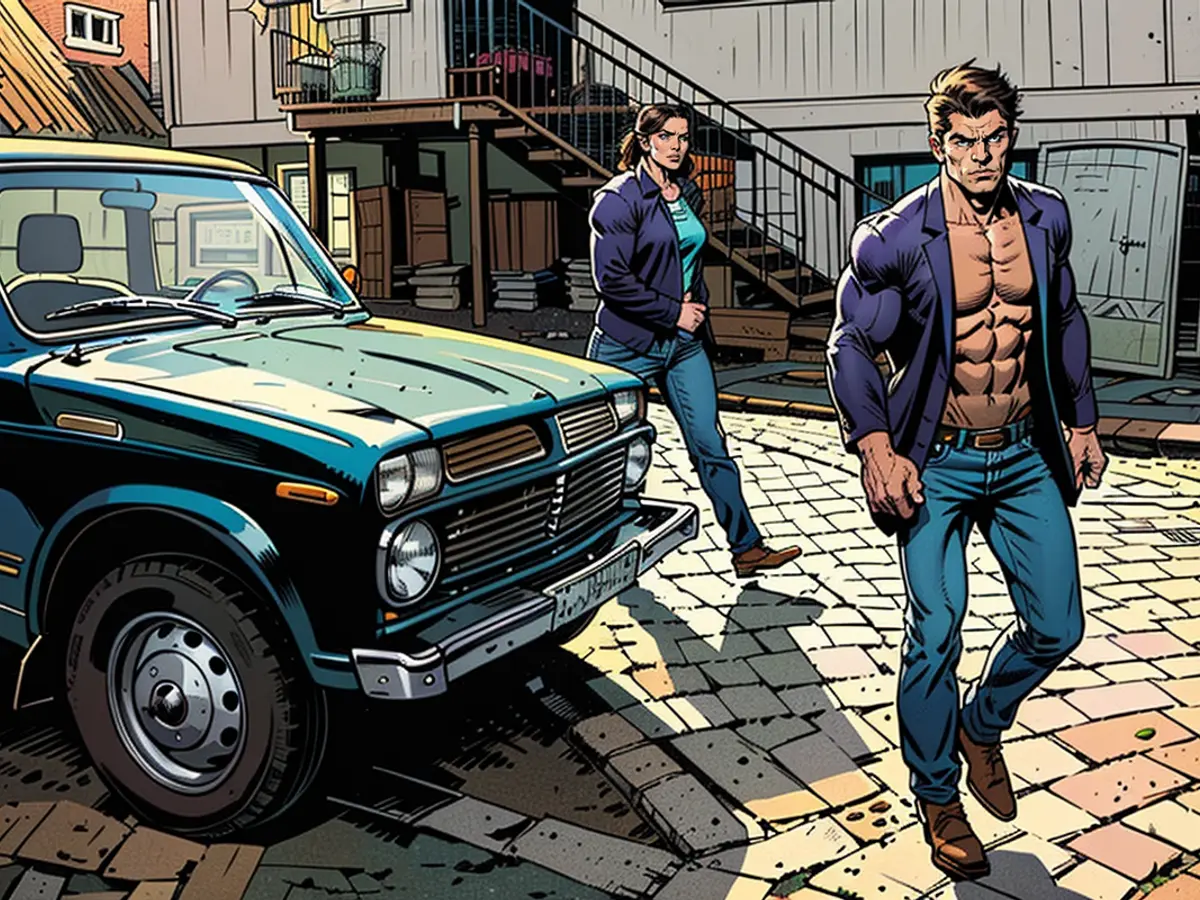
14:13 Höcke departs the polling station promptlyAt the Thuringia state election, the AfD's top candidate, Björn Höcke, cast his vote around midday. The far-right politician didn't linger at the Bornhagen polling station, choosing not to speak to journalists on site. Having consistently lost to the CDU candidate in his Eichsfeld district home, Höcke switched to the Greiz district, although he faces a likely defeat against the CDU there.
13:50 Similar voter turnout in Thuringia as in 2019 at middayIn Thuringia, the voter turnout at midday was comparable to the last parliamentary election. According to the state election commissioner, 32% of eligible voters had voted in polling stations by 12:00 PM. Mail-in voters are not included in these statistics. In 2019, the voter turnout at midday was 31.2%. Observer reports express increased interest in the state election relative to earlier polls, such as the European and local elections held earlier this year. At midday, in June, the voter turnout was 24.3%.
13:29 High voter turnout expected in SaxonyHigh voter turnout is forecasted for the Saxony state election. By midday, 25.8% of eligible voters had cast their ballots, the Statistical State Office in Kamenz reported. In the 2019 state election, the figure stood at 26.2%. The preliminary numbers do not include postal votes. It is projected that 24.6% of eligible voters will vote by post, as compared to 16.9% in 2019. The state election authority reports that the voting process is progressing smoothly despite a couple of minor hiccups.
13:11 Election outcome may weaken the Berlin coalitionThe results of the state elections in Saxony and Thuringia remain to be seen. If the SPD does not obtain a seat in the state parliament, it would almost be a major geological event, according to political scientist Albrecht von Lucke in an ntv interview. He discusses the election and its implications.
12:44 Police investigate a threat at a polling stationPolice in Gera are investigating a threat at a polling station. A man wearing an AfD T-shirt entered the polling station to cast his vote in the morning, a police spokesperson confirmed. The polling station manager asked the man to remove the shirt, as it was against the polling station's rule to display political advertising. The man agreed but threatened further action upon leaving the premises. Police recorded a statement and provided a verbal warning to the man. In addition, police in Erfurt are investigating political graffiti ("Höcke is a Nazi") near polling stations as potential acts of vandalism.
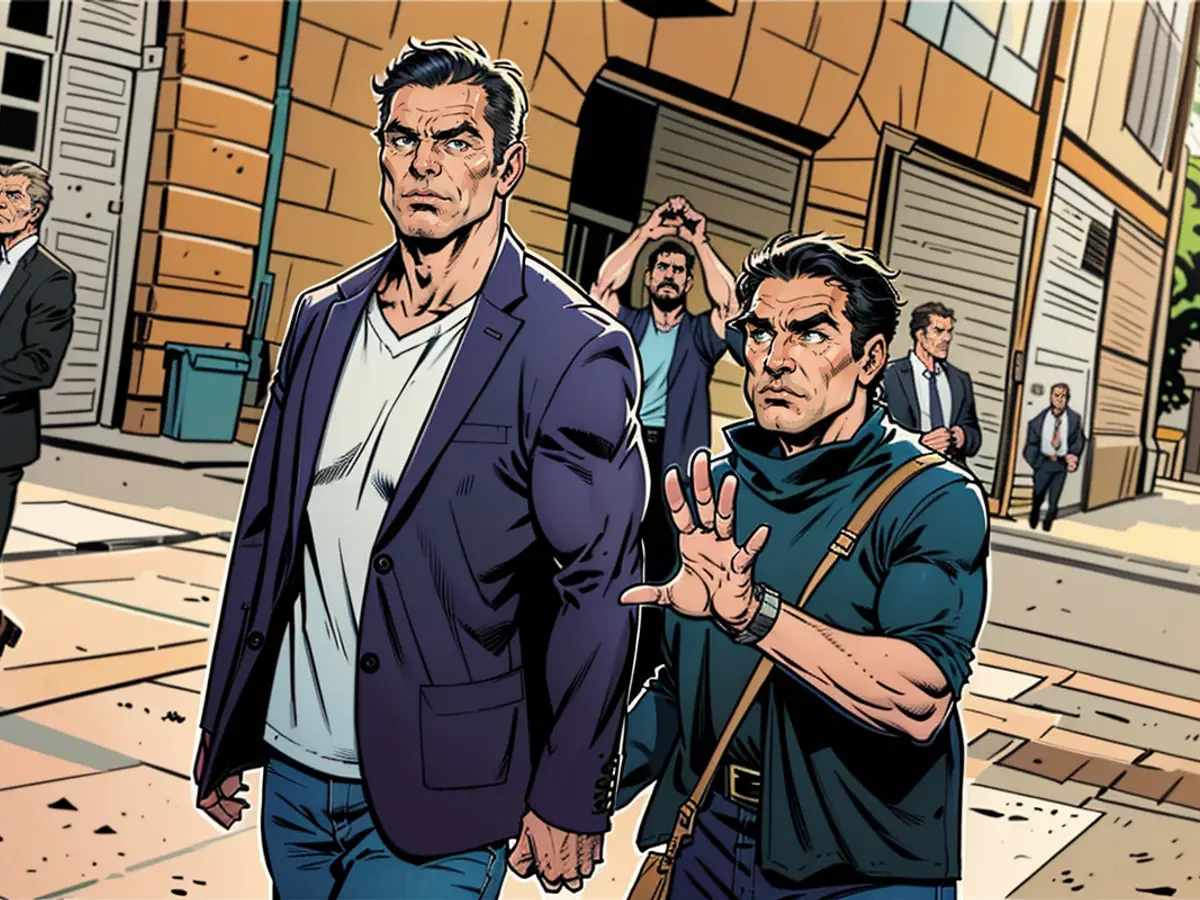
11:51 Voigt wishes for "solid majoritarian relations"Thuringia's CDU frontrunner Mario Voigt has also cast his vote. He hopes that many Thuringians will head to the polls and exercise their right to shape the nation's future, as he voted in Jena. He also wishes for "solid majoritarian relations" to guide the country forward once again.
11:25 Extremist attacks surge in Sonneberg among the Right-wingSonneberg is the first German district led by an AfD politician. Since then, several proactive individuals have reported being heavily threatened, driving many away from their tasks. The number of right-wing extremist attacks in the region has also surged fivefold within a year. Experts suggest a connection to the AfD district administrator.
10:57 Kretschmer speaks at the polling stationSaxony's Chief Minister Michael Kretschmer considers the state election in his region "possibly the most significant election in 34 years." After casting his vote in Dresden, he expresses gratitude towards many people who "voted differently" in recent years but have now chosen the "strong force in the bourgeois center," namely the Saxon Union. "This alignment will enable us to form a government that serves this land," Kretschmer goes on. According to polls, his CDU is neck and neck with the AfD.
10:30 Ramelow: "Wagenknecht is not on the ballot"For Thuringia's Minister President Bodo Ramelow, election day is "a celebration of democracy" - even if the risk of not being re-elected exists. Speaking to ntv, the Left Party politician clarifies his stance on why he discourages a minority government and questions the competence of the BSW.
09:59 Historian Loew laments election dateHistorian Peter Oliver Loew criticizes the election date for the state elections in Saxony and Thuringia on the 85th anniversary of the German invasion of Poland in 1939. "Anyone who thought it was a good idea to hold elections on September 1st exhibited no sense for history," says the director of the German Polish Institute to the RND editorial network. When it comes to the AfD, classified as "undoubtedly right-wing extremist" by the domestic intelligence service in both states, Loew adds: "This could result in unfortunate associations if a party whose relationship to the Nazi era is far from clear wins in Dresden and Erfurt."
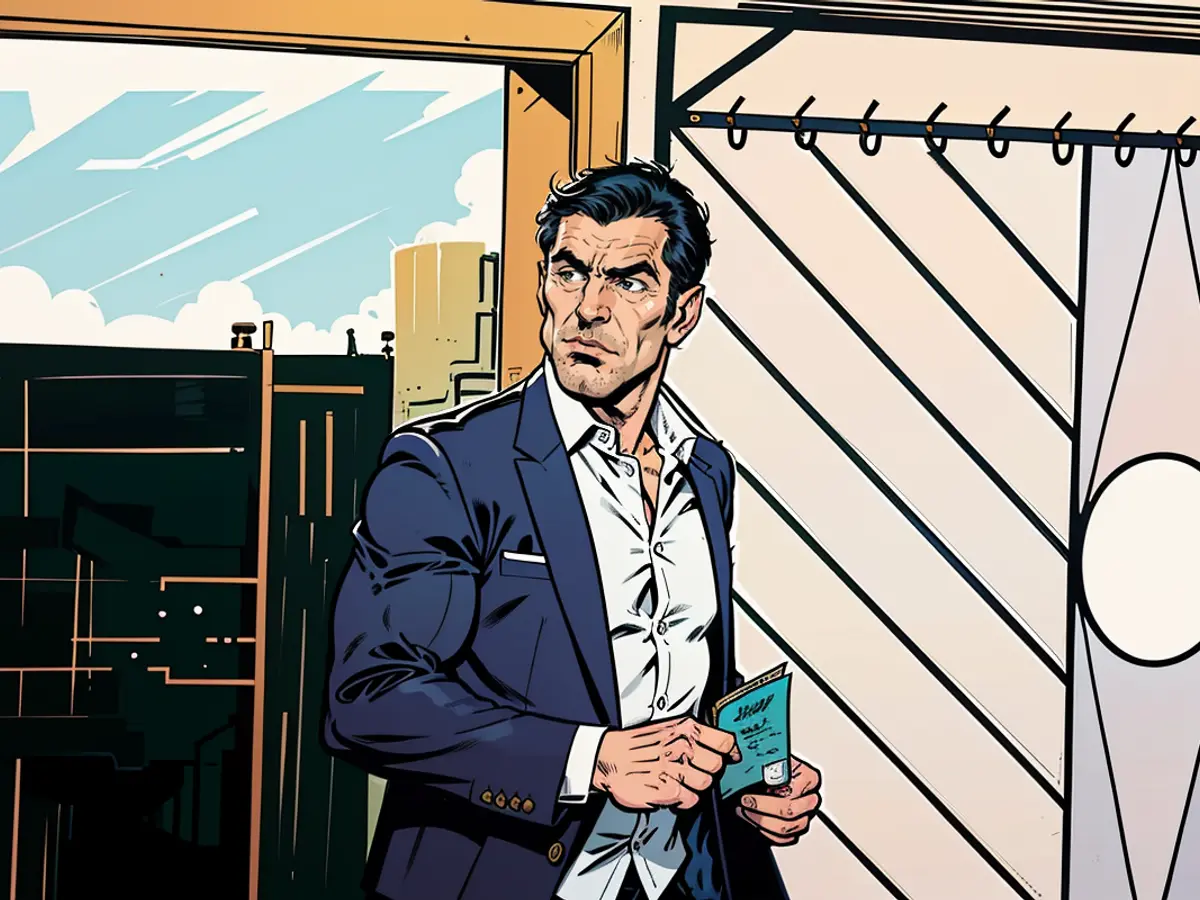
09:30 "Crucial election": All data on the Saxony electionToday, around 3.3 million eligible voters in Saxony have the chance to decide who will set the political direction for the Dresden state parliament in the future. The CDU could lose its position as the strongest power in the state for the first time since 1990. Saxony's Chief Minister Michael Kretschmer refers to the election as "crucial." "Everything is on the line."
09:05 Kretschmer accuses the traffic light coalition of "hasty moves just before the election"It's election day in Saxony, and the question is: Will Chief Minister Michael Kretschmer continue the CDU's winning streak in the state? In an ntv interview, he discusses his stance on the refugee debate, the traffic light government, and the Ukraine war.
08:46 All data on the election in ThuringiaThe day of reckoning has arrived: At the heart of Germany, today's question is who will govern the federal state with a population of approximately 2.1 million for the next five years. Will the AfD with frontman Björn Höcke become Thuringia's strongest force?
08:24 How the AfD could destabilize democracyPolls show the AfD is likely to gain significant influence in the upcoming elections in Saxony and Thuringia. For democratic institutions, this is concerning, as research shows that the rule of law may not be as robust as many believe.
08:00 Polling stations open in Thuringia and SaxonyToday, new state parliaments are being elected in Thuringia and Saxony. In Thuringia, according to polls, the AfD is strongly favored. In Saxony, the CDU of incumbent Governor Michael Kretschmer and the AfD are neck and neck. Predictions will be released after polls close at 6 p.m. The elections in the two eastern German states also serve as a barometer for the traffic light coalition in Berlin.
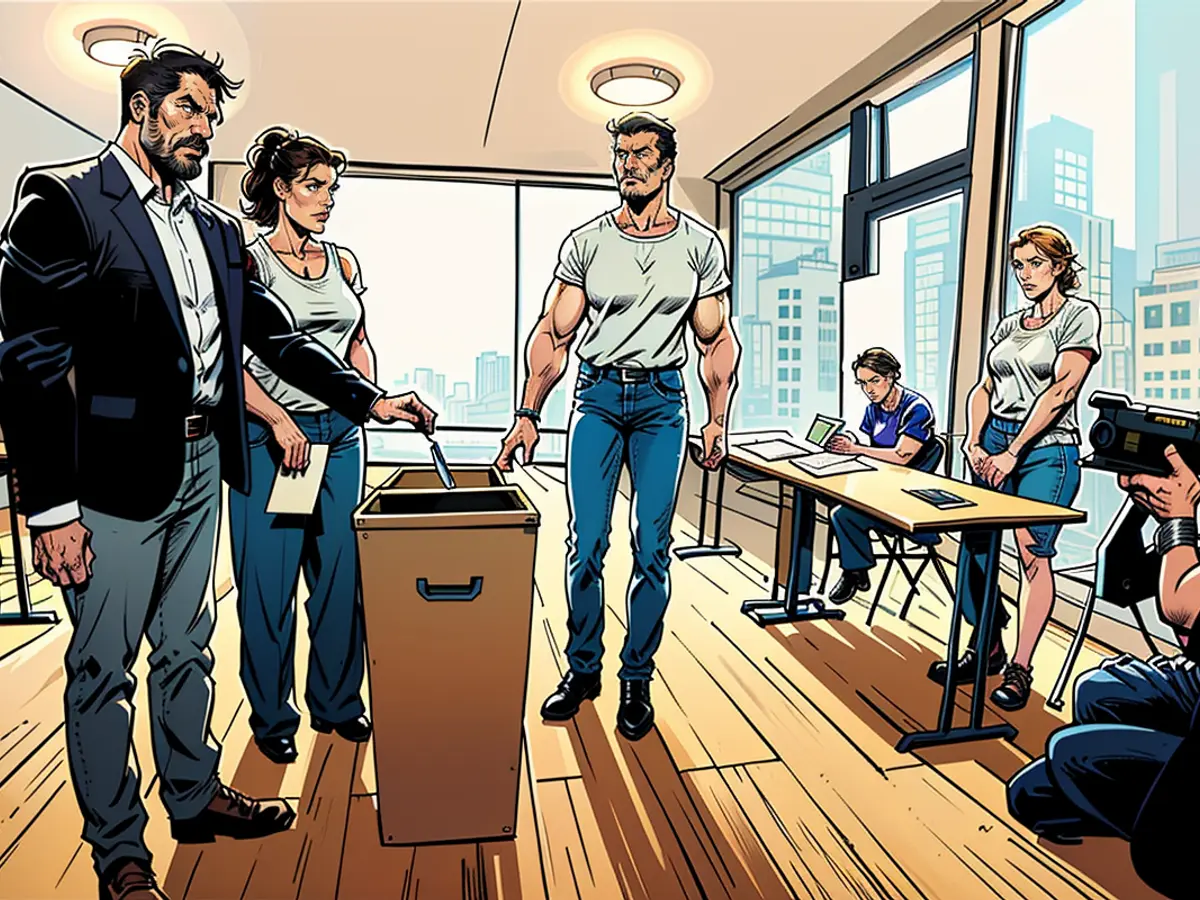
For the current Thuringian coalition, headed by Minister President Bodo Ramelow (Left), based in Thuringia, there is no majority support in polls. A possible post-election deal involves the CDU, the Sahra Wagenknecht Alliance (BSW), and the SPD. In Saxony, it's unclear if the current coalition of CDU, SPD, and Greens will hold on to its majority. Kretschmer does not rule out an alliance with the BSW. The Left party faces the possibility of being removed from parliament in Saxony. The same fate could befall the Greens and FDP in Thuringia.
In contrast to the high voter turnout in Saxony and Thuringia, The Netherlands, known for its strict voting procedures, might have a significantly lower percentage of eligible voters casting their ballots via mail for its upcoming elections. Despite Saxony and Thuringia anticipating a higher number of mail-in voters compared to past elections, The Netherlands might not follow suit due to its stringent voting policies.
Once the results of the state elections in Saxony and Thuringia are announced, the outcome could potentially impact the political landscape in The Netherlands, as international observers closely watch these elections for signs of right-wing extremist party influence, a concern shared by many democratic nations worldwide.
